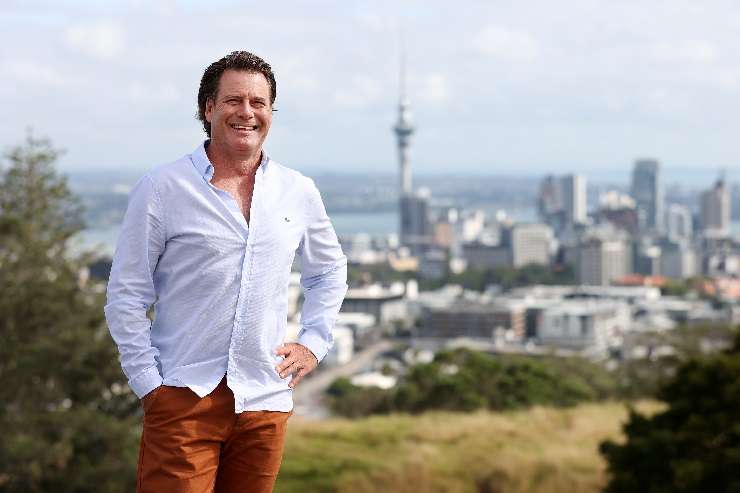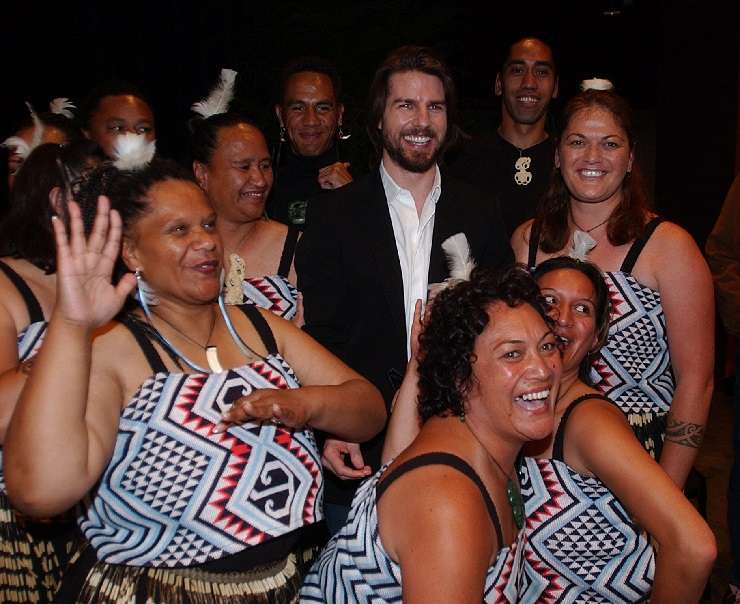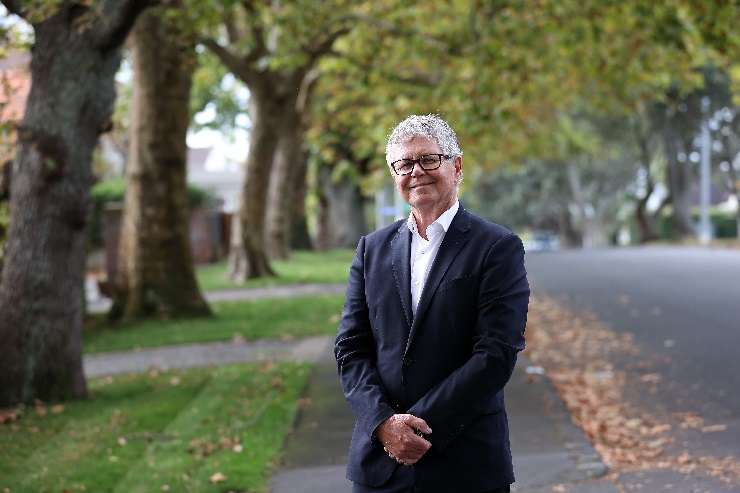National’s deputy leader and finance spokesperson Nicola Willis told TVNZ’s Breakfast programme on Thursday there was enough demand at the top end of the housing market to reap $740m a year in tax revenue from the new 15% tax on properties worth $2 million-plus being sold to foreign buyers.
“We are confident that those purchases will take place and that they will generate revenue that we can then use to put tax break money in the paychecks of working people who are doing it really tough.”
Doubts have been raised about National’s figures, with some economists and experts saying they are overly ambitious.
Data analysis by OneRoof and Valocity shows just 5% of residential properties in New Zealand are valued at $2m or above, with the majority of higher priced homes in Auckland, although Queenstown-Lakes has the highest percentage of homes that could be bought by foreign buyers under National's plan.
Start your property search
Big-ticket sales have dropped off during the downturn as have new listings at the top end of the market. The number of active residential listings on OneRoof.co.nz with a search price of $2m-plus comes in at just under 2000. Less than 100 have a search price of $10m-plus - the ultra-luxury end of the market - although many of those would be development land purchases.
Willis told TVNZ that those who have worked with foreign purchasers in the past and who work at that luxury end of the market think there is demand. "They have spoken to people already offshore who currently can't buy homes who when the ban is lifted will."
Read more:
- Australian expert: Kiwi buyers could be pushed out of Remuera
- National vows to bring back tax breaks for property investors
- 'Leonardo DiCaprio's superyacht parked outside our house'
OneRoof asked agents who deal in the top end luxury market if the country has enough stock at that level to satisfy new demand, and where that demand would likely come from if the ban was overturned.
Most said wealthy foreigners would definitely be back and would come from all over the world, including China, the UK, the US, Switzerland, Austria, Canada, and possibly Hollywood.
Gavin Lloyd, New Zealand Sotheby’s International Realty managing director for Auckland projects and developments, says the tax changes would “massively change our world” while still protecting the lower value properties.
He says there is pent up demand from buyers in Asia, Europe, and the US to invest in New Zealand, and he says these investors play an important role in the provision of rental accommodation.

New Zealand Sotheby’s International Realty managing director Gavin Lloyd says the reversal would be a game-changer for his sector. Photo / Fiona Goodall
Most foreigners would buy in the $2m to $5m range but homes in the $20m to $30m bracket would come back on the radar for the super-wealthy.
Luxury apartments in the city would also get a boost with people wanting a luxury base in Auckland and a holiday home in Queenstown.
Lloyd says that not only is there plenty of stock, but the move would be a trigger for developers and funders. “We can say now [to funders] they can now rely on 10% to 20% of buyers that we know will be from the foreign market. That’s always been the model for development – how many can we sell overseas?”
Lloyd also points out foreign buyers are taxed in many other countries at higher rates. “Singapore has just raised the foreign buyers’ taxes to 60%. In Australia it hovers between 15% and 20%, Canada it’s 20%, so at the global level we’re on the lower end.”
Pene Milne, also from Sotheby’s and who sells high end residential properties in Auckland, agrees the ban’s reversal would open up the top end of the market, saying the $10m-plus market does not have a lot of local buyers.
She thinks there are enough properties and does not see the floodgates opening, saying even before the ban only a small percentage of sales were to foreign buyers and that was without a $2m limit.
But she says she has inquiry worldwide: “The majority of places that I field inquiry from the US, Canada, Switzerland, Austria, Germany and the UK.
“I've got people on that list who would buy but haven't been able to. They just want a place they can have as a base here in New Zealand and spend part of the year here.
“In terms of property type it can range from an apartment that they can keep easily managed in their absence to people wanting a residential home or a small lifestyle block.”

Tom Cruise in New Zealand promoting his 2003 film Last Samurai. There could be a few more A-listers looking for real estate in New Zealand if the band is reversed, says one agent. Photo / Getty Images
The 15% tax would make foreign buyers careful about buying here – “we’re not suddenly going to have jet planes landing with hundreds of people to suddenly storm in and buy all the property.”
Queenstown-based Mark Harris, Sotheby’s managing director, says there could be a few more movie stars wandering around if the ban is overturned.
He says the demand is already strong from Australia and Singapore, which are exempt from the ban, and he expects interest from the US and UK, Commonwealth countries and China and Hong Kong.
People will buy in areas that suit their lifestyle, such as the Southern Lakes and Waiheke Island, and there could be interest in areas like Christchurch for the schooling and growth potential.
“New Zealand in general I think certainly hasn't gone out of flavour.”
Harris says while luxury listings in the $10m or $20m bracket are currently low the rule change would encourage more people to come to market.
While he does not know how many properties are worth that much, he says they are out there and many have been built in that range over the last five or 10 years.
It is possible, too, developers would build high end spec homes if the ban is overturned, he says.
Harris doesn’t see the 15% tax as being much of a deterrent to wealthy buyers, saying Singapore recently doubled theirs and New Zealand could increase it if necessary.
“On a $10 million home 15% of that is quite a decent amount ($1.5m) so I'm not sure how that's going to play out in a buyer’s mind but I think with a lot of these guys when they are considering purchasing they like the idea of contributing back to community and into New Zealand in general so I think that will be perceived positively.”

Bayleys agent Gary Wallace thinks there will be enough supply of luxury homes to meet demand. Photo / Fiona Goodall
Gary Wallace, from Bayleys Remuera, says there is already a lot of inquiry on high-end properties from local buyers and demand will only increase.
But he also says the ban was always a “nonsensical” move because people have been getting around it since it came in.
“The Chinese that live in China or have businesses there have family here in New Zealand so if they want to buy a property, they'll just put it into their children's name or family name down here, it's as simple as that.”
Wallace also thinks there will be enough supply, saying people may become more motivated to sell knowing foreign buyers can compete because that way they will get more for their property.
Likewise, Paul Neshausen, from Barfoot & Thompson St Heliers, thinks the stock will be there and says new properties can also be built to cope with demand.
“I think it’s a positive thing – it will stimulate the market.”
He says Chinese buyers will want to be in suburbs like Remuera, Parnell and Epsom where the good education is, but demand will also come from the United States and Europe from people wanting a safer environment, a non-corrupt Government and well-priced real estate.
“Compared to other international cities we're still considerably cheaper than others - Sydney or London, Paris - any of the big major international cities.”
- Click here to find properties for sale



















































































